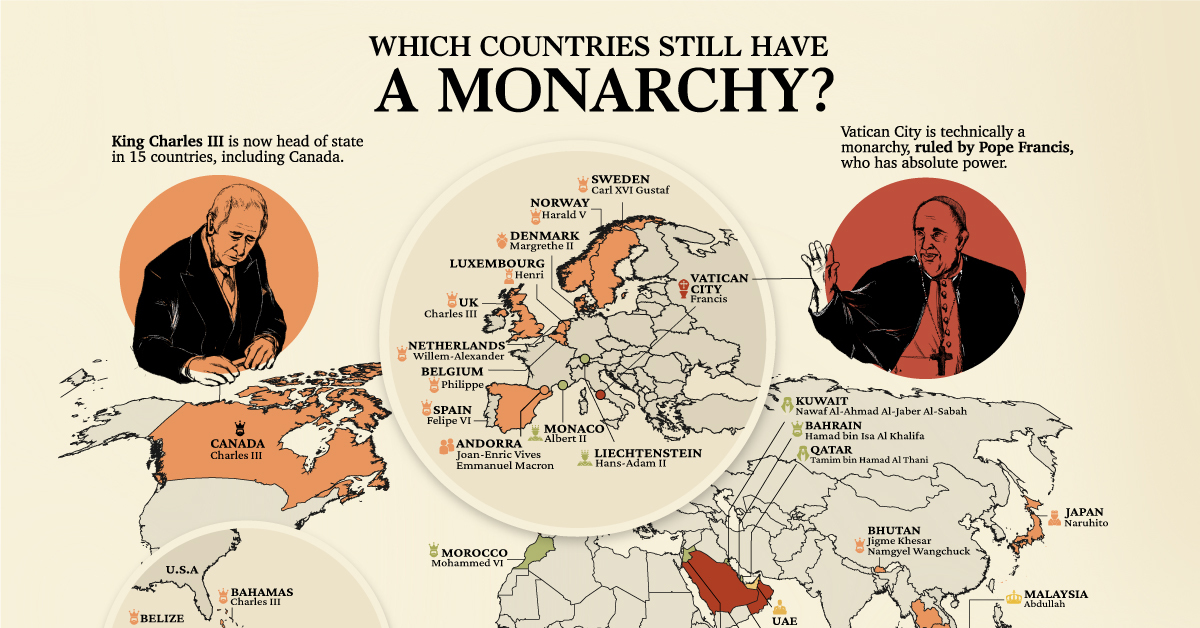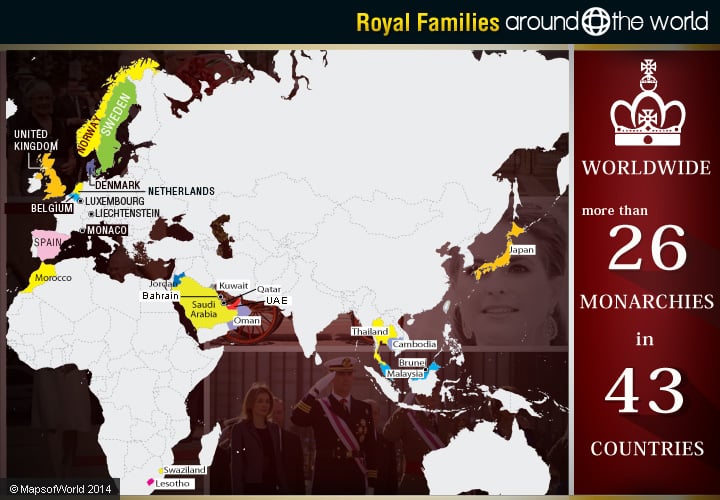There are 43 countries that still have a royal family

There are 43 Countries That Still Have a Royal Family

Did you know that there are still 43 countries in the world that have a royal family? Despite the rapid changes in societal structures and the rise of democratic systems, these monarchies have managed to hold on to their historic traditions and legacies. In this article, we will explore the countries that still have a royal family and delve into the significance they hold in today’s modern world.
The concept of a royal family dates back centuries, with monarchy often being the predominant form of government in many regions. While most countries have transitioned to democratic systems, these 43 countries continue to maintain their royal lineage, with each having its own unique customs and traditions.

Among the most well-known monarchies are the United Kingdom, Japan, and Spain. The British royal family, headed by Queen Elizabeth II, is arguably the most famous. From glamorous weddings to high-profile public appearances, the British royal family captures the attention and fascination of people worldwide.
In Japan, the Emperor serves as a symbolic figurehead and carries deep cultural significance. Known as the world’s oldest hereditary monarchy, the Japanese royal family is revered for its harmonious blend of tradition and modernity.
Spain, on the other hand, has a constitutional monarchy. King Felipe VI and Queen Letizia not only fulfill ceremonial duties but also act as unofficial ambassadors, promoting Spain’s cultural heritage both at home and abroad.
However, it’s not just these countries that have a royal family. Lesser-known monarchies also exist in countries such as Norway, Sweden, Thailand, and Bhutan, to name a few. Each of these royal families plays a vital role in their respective nations, representing continuity and stability amidst changing times.
Having a royal family often provides a sense of national identity and fosters a connection to history. These monarchies serve as symbols of unity, embodying the values and traditions of their respective nations. They act as a unifying force, particularly during times of celebration or national crises, rallying citizens together in support of their monarchy.
While some argue that monarchies are outdated and unnecessary in today’s world, supporters emphasize the cultural and historical significance that these institutions bring. They argue that these royal families preserve cultural heritage, promote tourism, and serve as a stabilizing force in times of uncertainty.
In summary, there are still 43 countries that maintain a royal family, each with its own unique customs and traditions. From the British royal family’s global fame to the symbolic role of the Japanese Emperor, these monarchies continue to play an important part in their respective nations. Regardless of personal opinions on the matter, the existence of these royal families reflects the enduring power of tradition, history, and national identity.
Related Posts
Quick Links
Legal Stuff

